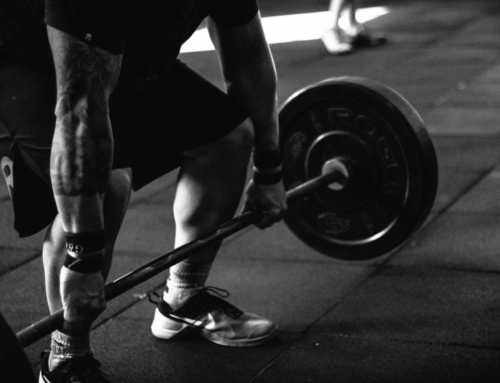As we age past 50, we become more susceptible to a condition known as sarcopenia, which is a steady decline in skeletal muscle mass.
In order to deal with that issue, we need to do several things…
- Strength training
- Eat enough protein
- Get enough rest
Previously, I’ve discussed the best exercises for building strength, which in turn helps you build skeletal muscle mass.
In order to build that strength and muscle, you need to eat enough protein.
But, what exactly is that amount?
How much protein to build muscle?
Unfortunately, FDA dietary guidelines fall woefully short of what you need to build strength and muscle.
For a 2,000 calorie diet, they prescribe about 60 grams of protein.
That’s probably about 50% below what a person consuming that amount of calories actually will need.
According to the American College of Sports Medicine, the optimal range is somewhere between 1.2 and 1.7 grams of protein per kilogram of bodyweight.
For a 200 pound male, this would equate to 109 to 155 grams of protein per day if they are engaged in strength training.
I should note this is a bit less than what the bodybuilding world will tell you, as that community suggests you need to consume 1 to 1.5 grams per pound of bodyweight, or 200 to 300 grams for the aforementioned 200 pound male.
Best sources of protein
 The best sources of protein are animal proteins… beef, chicken, fish, etc.
The best sources of protein are animal proteins… beef, chicken, fish, etc.
The issue with plant based protein is that it is attached to fiber, and the body will not digest all of it.
When consuming your protein from animal sources, you have to be careful with the amount of fat that is coming with the protein, as that will increase your caloric intake.
Here are a few good sources of protein and their amounts for a six ounce serving…
- Top Sirloin – 46 grams of protein, 400 calories
- Salmon – 37 grams of protein, 350 calories (farmed salmon)
- Chicken Breast – 53 grams of protein, 281 calories
- Shrimp – 40 grams of protein, 168 calories
If you are in need of losing fat while gaining muscle, this becomes an important consideration.
Another issue to consider is that you can’t just sit down and consume all of the protein you need in one sitting.
Research indicates that the body can absorb all of the protein you consume, but only a limited amount of amino acids need to fuel muscle growth will be put to work.
Therefore, the body will only utilize up to about 40 grams of protein at a time to build muscle.
Therefore, you want to spread out your protein intake across four or five meals per day.
Many people will not be able to consume this much animal protein per day, so a protein supplement will be required.
I recommend this Whey Isolate protein powder. You can mix it with just about any beverage, but I typically use milk or just water.
Final Thoughts
For those of us past 50, we have to pay a lot more attention to our dietary needs, even if we are very active.
The days of building significant muscle just by eating everything in front of us are long gone.
That doesn’t mean we can’t enjoy some good food on a daily basis.
In fact, the best food tends to be the most nutrient dense, and therefore, can be the focal point of our meals.
With better planning on a weekly basis, we can ensure that we get the right nutrition to be sure we build a stronger, healthier body. This will then help us enjoy a higher quality of life if we are lucky enough to reach an advanced age.
Now, get to work!
Discover more from Scott Allan Cole
Subscribe to get the latest posts sent to your email.






Leave A Comment